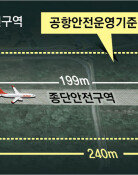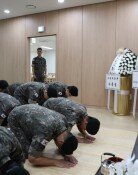Personnel Experiment Storm in Government Departments
Personnel Experiment Storm in Government Departments
Posted January. 25, 2005 22:47,
Manager Kim of a government agency, despite his dissatisfaction against the way his employees work, could not tell them off. On the verge of pointing out the problems, he had to calm himself down by forgiving them.
This is due to the multiple evaluations system introduced this month. If workers evaluate their boss poorly, then there will be a disadvantage in personnel management.
Since the beginning of the year, each government department is introducing an unprecedented personnel experiment. It can be divided into two groups: introduction of public recruitment and various evaluation methods.
However, there are criticisms that due to unrealistic personnel experiments, the public officers society is now unstable.
If one receives poor multiple evaluations, there will be no position
The Ministry of Finance and Economy (MFE) announced yesterday that they were making a new personnel management improvement proposal that those ministers and managers who received poor results will receive a self-refreshing period without any position.
The MFE added, With the personnel information data, we will use two evaluation methods: a multiple evaluation in which every worker participate and another method in which only work related department workers participate.
The Ministry of Culture and Tourism (MCT) used online multiple evaluations results, participated by all workers, while promoting 200 personnel below the secretary level yesterday. Due to the ground-breaking nature of the method, the MCT, to lessen the organizations confusion, has announced the promotion result earlier than the planned date of early February.
Controversy on selecting leaders based on popularity vote
The Fair Trade Commission conducted internal recommendation and decided to select minister level personnel based on inferiors preference survey. This brought about the criticism that it is selecting personnel by popularity voting.
The Ministry of Health and Welfare (MHW), before the January ministerial promotion, collected a task plan from the applicants. The MHW, in promoting secretary level personnel at the end of last year, counted the interview results as 30 percent of the total score.
Public officers society is mostly negative on the multiple evaluations. A minister level personnel of an economy department said, Multiple evaluations can only give good grades to people you know. I am doubtful if it has any uses.
However, a professor at Seoul National University of Technology, Namgung Geun evaluated, There might be problems in changing systems quickly, however, it is positive that this could be the turning point to develop a new bureaucratic society.







